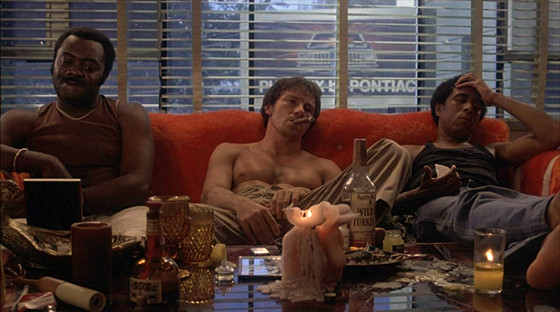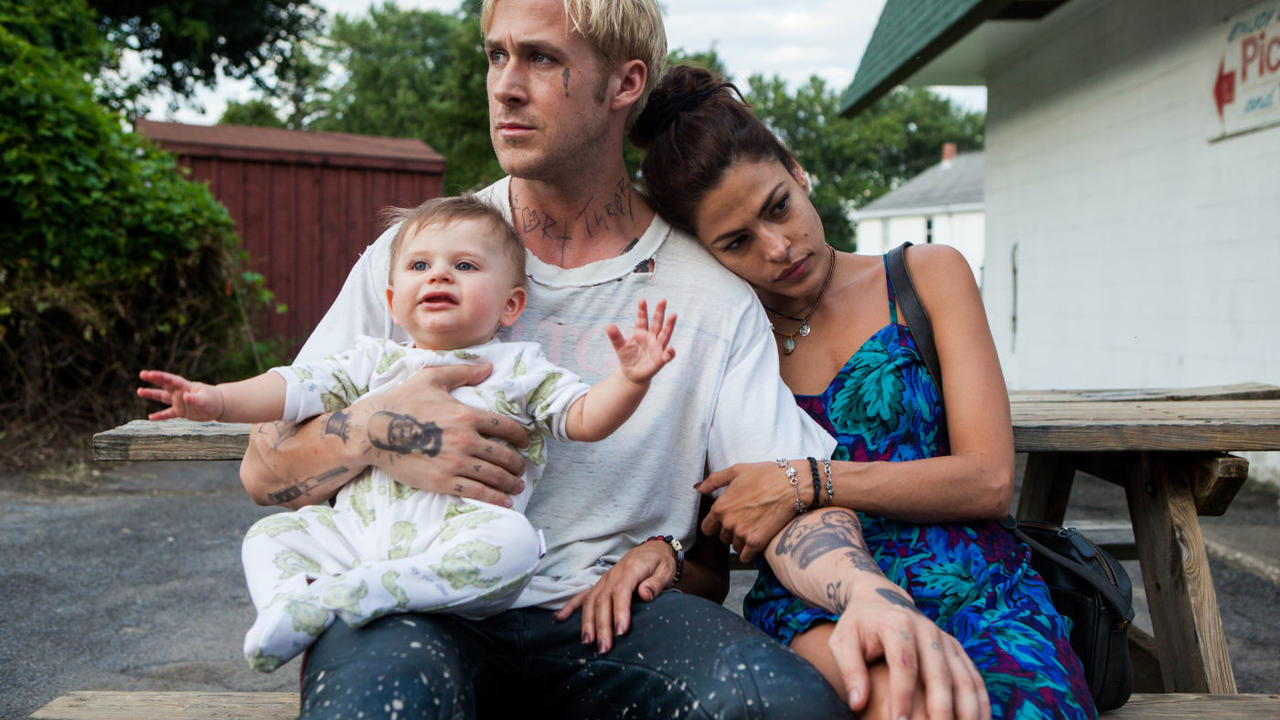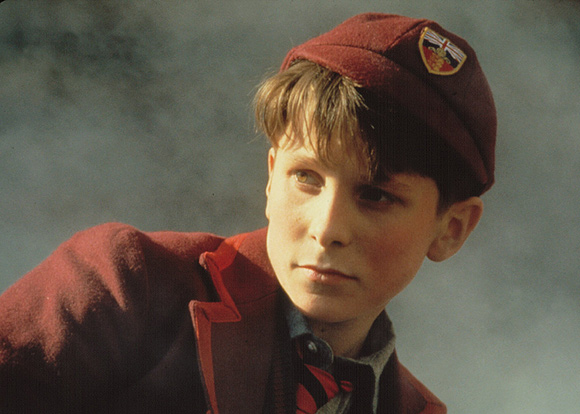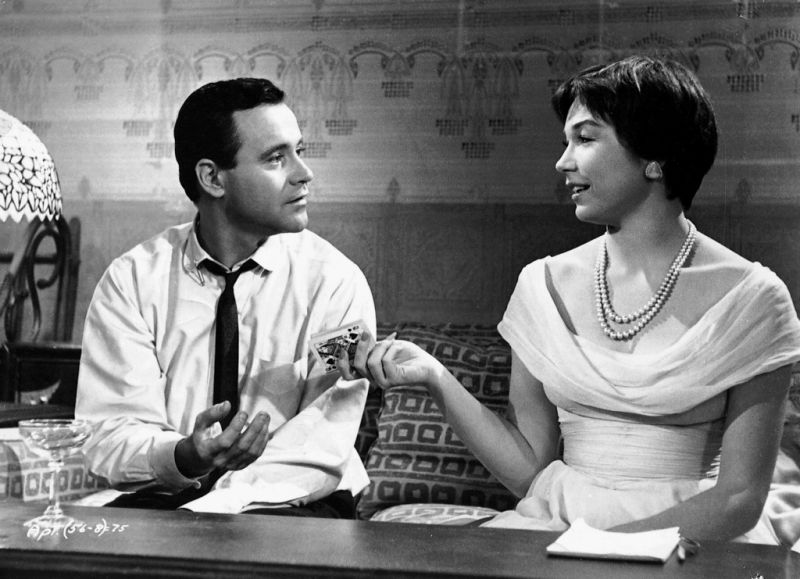6. Blue Collar (1978)

Blue Collar is another one of those films that starts out as a comedy, has all the ingredients of a comedy, and then halfway through becomes much more than that. And not abruptly either: Paul Schrader’s direction is so flawless here you barely notice the film as changed tones until it has already happened. For some reason you start to care less about how funny Richard Pryor is, and more about what will happen to his character and friends.
Judd Apatow and Seth Rogen once described their atypical approach to writing comedy that also functions as, “an actual good movie.” Apatow explains, “Now you get a lot of penis jokes with heart. You get penis and heart.” This is what Blue Collar does properly: the characters happen to be funny people, but they’re also struggling emotionally.
The circumstances they’re stuck in (and exacerbate themselves) challenge their friendships with each other, and increase the heart of the film. When the stakes are raised, the film does a total 180: their friendships are ruined, not everyone survives, and the characters get better jobs, but they end up as enemies. By the end of Blue Collar, it has effectively gone from a buddy comedy to a crime drama.
7. The Place Beyond the Pines (2012)

In my opinion, without Psycho there is no Place Beyond the Pines. The decision to kill off Ryan Gosling’s character when we’re rooting for him is a total Hitchcock move: all of a sudden, the film isn’t about him anymore. It becomes a sprawling story about fathers and sons, aging, morality, and the choices we make in life. It also perfectly illustrates a recurring characteristic of storytelling in the gearshift movie: it has a free-flowing structure that allows itself to follow a liberal path.
One divergence is an entire subplot with Ray Liotta (the second time he’s gearshifting a movie on this list) and Bradley Cooper’s characters, involving a corrupt police force. The tone of this meandering story feels like it’s leftover footage from an entirely different movie. If the film followed a more traditional route, the effectiveness of the story might have suffered.
8. The World’s End (2013)

There have been a slew of comedies in the past few years that carefully balance genres, but The World’s End takes a bold approach: it almost offers no warning beforehand where it’s going to go. At first it’s a comedy, Simon Pegg’s character offers heartfelt drama…and then it becomes an alien invasion movie (with the first two elements of the film still miraculously intact).
In one of the most surprising tonal shifts in recent history, a bathroom scene that would only be limited to a brief comedic moment in another film turns into the film’s first introduction with aliens. The scene’s energy keeps topping itself as the protagonists (and the audience) try to grasp the new reality they find themselves in, while simultaneously having a violent confrontation. If one were to leave for the bathroom during this scene, they’d return to a different movie.
The dynamic of The World’s End has irrevocably changed after this scene. The joy of watching this movie is with a large audience; you can hear everyone collectively losing their minds. Even by Edgar Wright standards, the “gearshift” in this movie is groundbreaking, and executed beautifully.
9. Empire of the Sun (1987)

For the first half hour of this film, Spielberg introduces us to a rich British boy (played by Christian Bale) and his family living in Shanghai. They live a life of privilege, ignoring the fact that there is war-torn poverty all around them. The boy lives the lighthearted adventure-driven existence typically found in Spielberg movies. At first, the feeling we get isn’t that far off from something like E.T. (1982).
But Spielberg isn’t interested in making that type of film. We quickly learn the British family is at the tail-end of their wealth, and the honeymoon period of the film is over. The boy loses his family, and is thrust into the same poverty briefly encountered before. He finds himself struggling to survive under Japanese occupation in World War II.
From there onward, the film constantly battles tones between uplifting messages about humanity, and harrowing opposites. In one scene, Bale’s character befriends a young Japanese man in a moment that suggests hope in a hostile place. Shortly after, the Japanese man shares his fruit with him, offering to cut it with his katana. The gesture is misunderstood, and the man is met with hostility and violence.
The film is riddled with moments that shift in tone like this. Spielberg was initially criticized for lacking focus with his direction upon the film’s release. But when viewed as the gearshifting film it is today, it all works.
10. The Apartment (1960)

For a movie that initially sets out to be funny, The Apartment sure has a lot of depressing things going for it. The true hallmark of a great “gearshift” film is its ability to make you laugh and break your heart in the same running time, and this is exactly what Billy Wilder does.
It has a sense of humour, but there’s also a man living a miserable life, and men treating women terribly. You’re not sure whether to feel sorry for them, or laugh, so you don’t take it seriously. You don’t notice how dark it’s being at first. Eventually this repetitive comedy/tragedy-hybrid culminates in one grim scene. W
ilder strips all traces of humour present beforehand, placing Shirley MacLaine’s character in serious danger. A jarring score that didn’t seem to be there at all in the movie before is strategically placed.
All of a sudden it dawns on you: you care more about MacLaine’s character than you thought you did, and this was a dramatic movie the whole time. Even Jack Lemmon’s character changes after this scene. Seeing MacLaine’s character in life-threatening turmoil is a wake-up call. His misery isn’t funny to us anymore. The joke is over, and he finally decides to start sticking up for himself. In a “gearshift” film like The Apartment, comedy exists as a red herring.
Author Bio: Dilair Singh is a film lover from Toronto. He particularly enjoys screenwriting, and hopes to sell a screenplay someday. You can find him on Twitter: @dilairsingh.